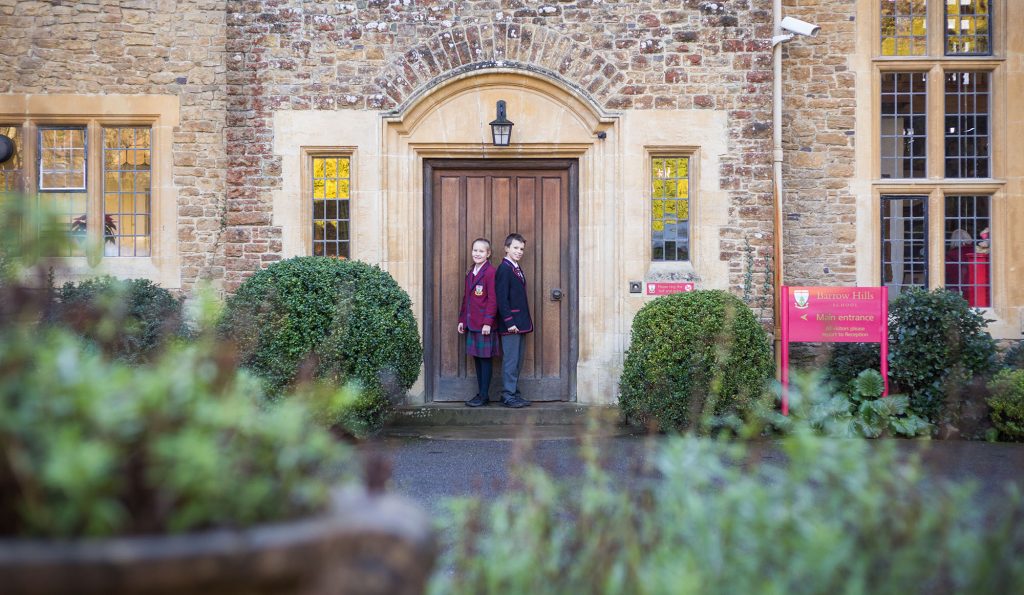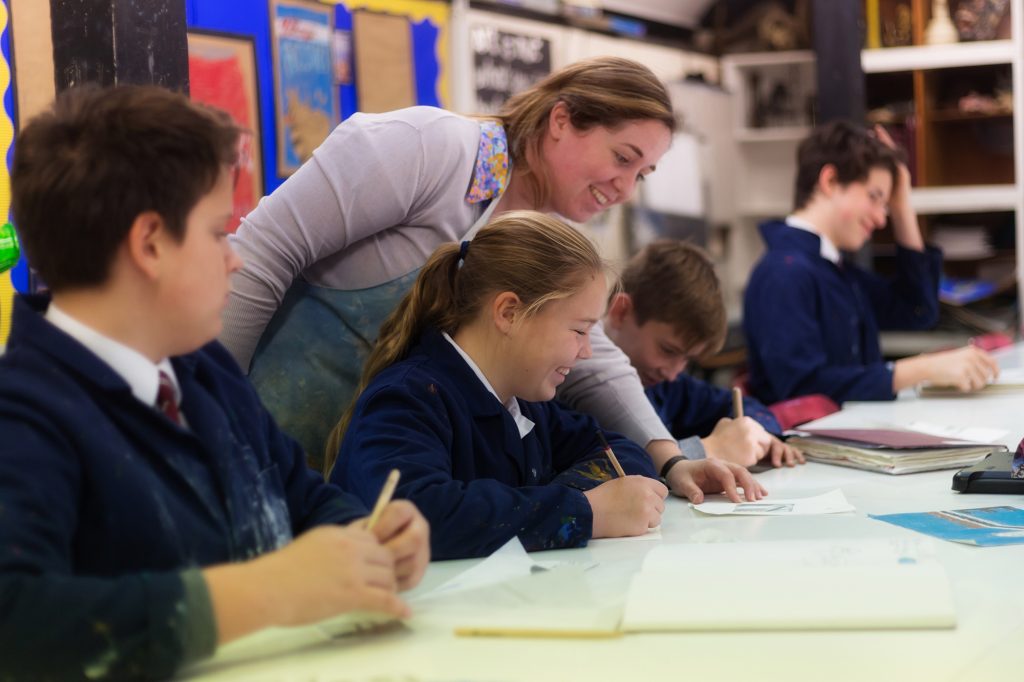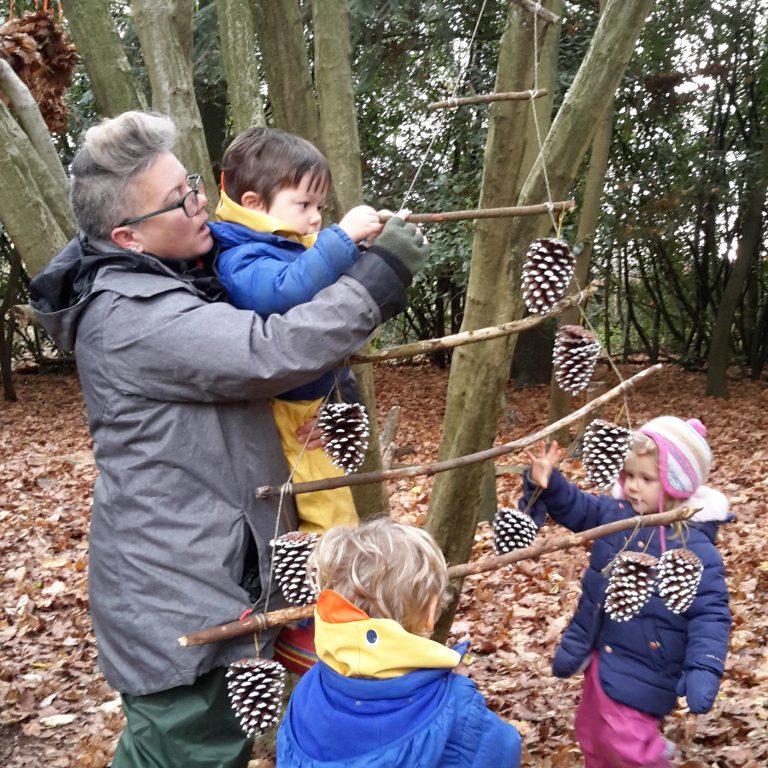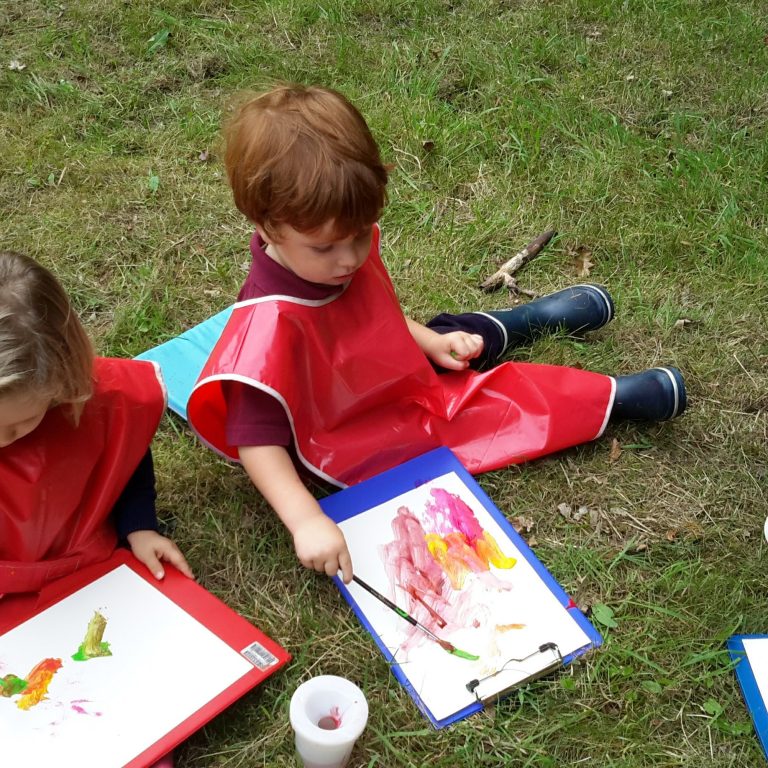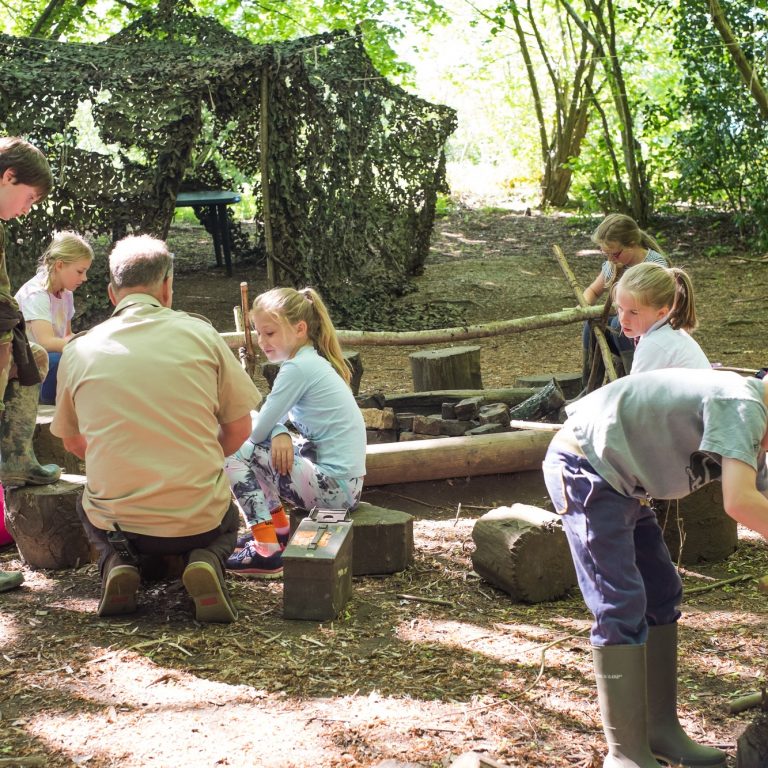Learning in the forest
By Richard Dean, Forest School Leader
How many parents regularly bemoan the fact their children seem to have lost sight of the simple enjoyment to be derived from outdoor play? This comes as a direct result of over reliance on electronic devices and the overwhelming temptation to join the leagues of primary school children who are already embracing social media. Running around in the great outdoors, creating camps out of the most unusual resources, getting muddy and just having FUN …. yet without the use of a single electronic gadget or screen seems to have dropped off the agenda of today’s young children. We are in danger of raising a generation whose leisure time is restricted to communicating via a TV, tablet or mobile phone depriving them of all the critical social skills required in life.
Following some shocking survey findings, schools are being urged to ensure primary pupils get the chance to play outside. A poll revealed that three-quarters of six- to 11-year-olds spend less time outside – in non-school time – than the daily hour recommended for prison inmates by the UN. The report Play in Balance, commissioned by Persil, polled 12,000 parents worldwide. In the UK, 75 per cent of parents said their child preferred to play virtual sports games on a screen rather than real sports outside. But persuading children to spend more time in the natural, as opposed to virtual, world is not just good for the soul. It also provides unique learning opportunities and a chance for children to shine and thrive in a totally different environment: helping them to learn how to assess risk for themselves, improving both their physical and emotional confidence.
Barrow Hills, a prep school for girls and boys aged two to 13 has always focused on the importance of providing a school setting that encourages children to be, first and foremost, happy. The School takes pride in offering an education which does not lose sight of the need for children to enjoy a carefree childhood for as long as possible. This founding principle led to the School acknowledging the value of Forest School and incorporating this style of learning into the weekly schedule for all children. Forest School is an outdoor learning concept that offers ALL learners regular opportunities to succeed and develop confidence and self-esteem through hands-on learning experiences in a woodland or natural environment. It is a specialised learning approach that sits within and compliments the wider context of outdoor and environmental education and represents an ethos that is shared by thousands of trained practitioners across the UK and beyond (the Forest School programme was first pioneered in Scandinavia).
Richard Dean has been responsible for the delivery of Forest School learning in the Prep department at Barrow Hills since September 2011, each day of the week. A former Army service man (Rifleman, Royal Green Jackets), and following a two-year study course, Richard is now a qualified Forest School Leader and passionate about the benefits of Forest School and its positive impact on children, supporting their physical, social and emotional development, encouraging enhanced self-assurance and resilience as well as promoting respect for each other (and the environment) and establishing team building / problem solving skills. And with no plug or button in sight!
At Barrow Hills, Prep Forest School takes place in the School’s impressive 12-acre forest. Activities are centred at ‘HQ’ where there is a fire square surrounded by a large log circle. A large camouflage net provides an outdoor/indoor space or perhaps a classroom with no walls. This area is useful for more complex instruction on the safe use of sharp tools and useful knots. The Pre-Prep children, led by Forest School Leader Niki Wilson, have their own dedicated Forest School area. Children attend Forest School attired in appropriate clothing every week right through the year, almost regardless of weather conditions. One of the often heard mottos is
“There is no such thing as bad weather, only unsuitable clothing”
“The children come to Forest School to enjoy exploring the natural world. As well as having tremendous fun and breaking free from the traditional classroom setting, we are able to teach them a wealth of technical techniques to help them understand the basic requirements for survival, ie warmth, shelter and sustenance. One of the greatest attractions of Forest School is that, unlike timetabled lessons, we are often able to adapt our plans to suit the mood or conditions. The children can, to a degree, influence the activities we undertake, all of which offer subliminal learning, which will equip the children with important skills that will remain with them for the rest of their lives. Forest School is the very essence of holistic whole body learning, so we steer the children to participate in exercises which may provide a practical explanation to their classroom studies. Rather than simply developing academic prowess we are also helping to develop ’emotional intelligence’, which helps to hone important social / practical skills like reliance and the ability to bounce back from challenges and setbacks.”
Every day spent in Forest School is different. The children’s hunger for learning in this environment is unique, whether they are working out where and how to safely build a fire, building dens (from simple sticks lent against trees to more complex structures) or gaining confidence in how to forage safely and enjoy nature’s ‘larder’ (including understanding the steps to be taken to enjoy natural spring water). Enjoyment is at the heart of everything they do. As well as developing an appreciation of basic survival requirements, the Forest School initiative helps to demonstrate essential woodland management techniques and allows children to fine-tune simple tool working skills all whilst simply enjoying the camaraderie of working together as a team, Forest School is an outstanding success at Barrow Hills, not to mention one of the most enjoyable ‘lessons’ of the day.
The programme has also been proven to offer specific benefits for children with special educational needs, who may find it difficult to cope with the normal protocol consistent with a traditional classroom.
“I was asked by the School’s SEN coordinator to develop a random list of children who I believed were benefiting significantly from Forest School, with no prior knowledge as to which pupils may or may not be identified as having additional learning needs. Amazingly, of the list of 18 children which I identified, 12 had been assigned SEN status. Children who may experience some issues with conventional learning and the processing of information describe Forest School as an idyllic island, a place where they can thrive, far away from the stresses and pressures of a regular learning setting. We are in danger of depriving our children of the benefit, as well as the ‘right’, of play and seeing the children return to the classroom with rosy cheeks, a big smile and feeling revitalised and ready to concentrate, is incredibly rewarding” continues Richard.
Ultimately, the benefits of Forest School were recently summed up by educationalist Sir Ken Robinson in an interview with the Times Educational Supplement
“schools have a big role because children spend the greater part of their waking hours at school. I think it’s important that we look again at the importance of play-based learning – there’s a long history of research to show that play is not a waste of time, it is not time that is badly spent. Play, among human beings, has very important social benefits. Playing outdoors in particular has an important role in children’s emotional, physical and social development and it is important that this is encouraged in schools and not “discouraged or ignored or suppressed”.
Richard sums up his view on the benefits of Forest School by quoting Irish poet William Butler Yeats.
“Education is not the filing of a pail, but the lighting of a fire.”


